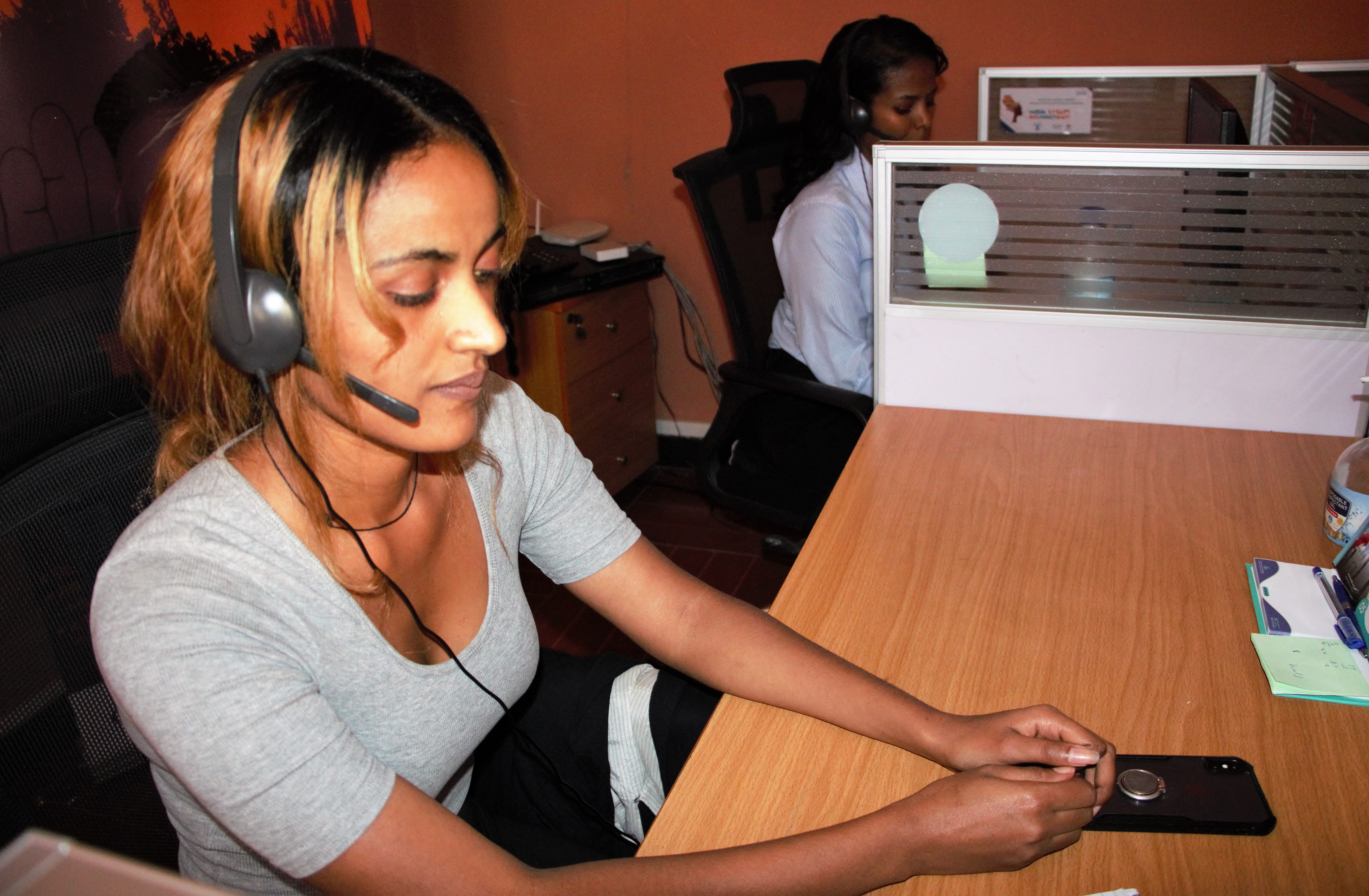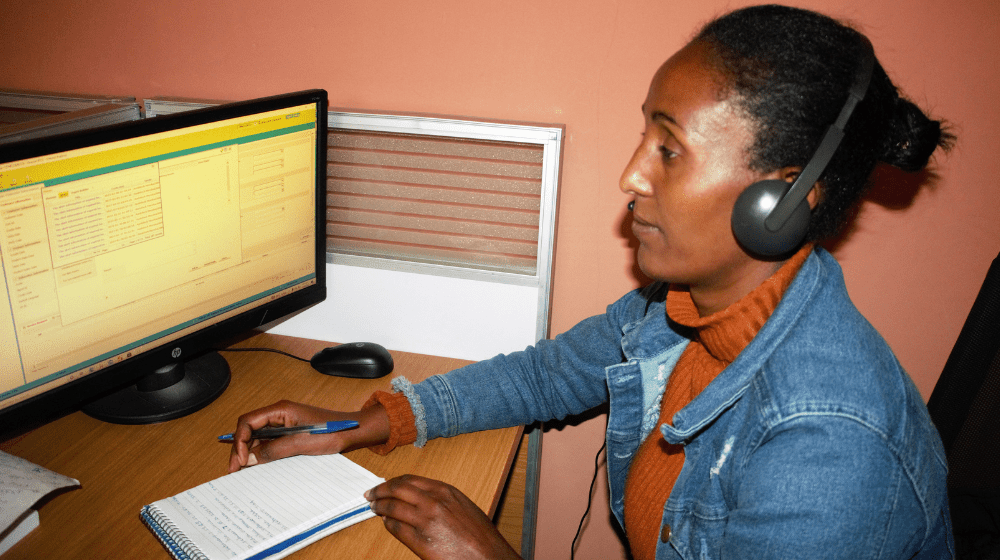The UNFPA-supported Toll-free Hotline (7711) for GBV survivors receives up to 15 calls daily in three languages, Amharic, Oromiffa, and Tigrigna. The calls come primarily from women who are victims of violence, including GBV. The Ethiopian Woman Lawyers Association (EWLA) runs the call center to provide quick access to legal aid services.
‘’Most calls are from women who seek advice about violence in marriage, divorce, and child support. GBV cases are also common. Sometimes, we receive calls from women in imminent physical danger, which is the hard part of our job. We quickly connect them with EWLA focal persons in their area. It helps that we have offices and focal points in most woredas. There is usually someone to support them quickly,’’ said Feven Gaddisa, a lawyer at the call center.
The call center was established in 2019 with UNFPA financial and technical support to facilitate access to free legal aid services for women.
‘’We receive calls from across the country. Most calls are in Amharic, but many also come in Oromiffa. Now that telephones are working in Tigray, caller numbers are increasing from there,’’ said Wondemenehe Lemma, the Program Coordinator for the hotline service at EWLA.
Sometimes, the calls come from individuals who are concerned about others. Heaven remembers a call from a man worried about a woman who lives in his neighborhood.

"He called and said there is a woman next door, and she is likely there against her will. She never leaves the house''. Heaven immediately communicated with EWLA focal points in the area. ‘’We learned she was abducted and abused by a guy who forced her to stay in the house for years. She might have been underage when that first happened.
That woman got her freedom, and I am grateful to the man who made the call,’’ she said.
When women call the center, they are immediately connected with lawyers and would receive advice on what they should do, where to go, and, if crimes have been committed, how to communicate with the police. They also receive information on collecting evidence, and ways to protect themselves from further violence. If they are in danger, EWLA refers them to AWSAD and other safe houses to shelter them. For psychosocial support, they are directed to Setawit, a feminist organization that provides psychological support to women through another hotline.
EWLA also partners with UNFPA to train law enforcement bodies, including police, public prosecutors, and judges. The training is aimed to raise awareness and sensitivity. In 2021-22, EWLA trained around 60 judges on gender-based violence (GBV) and harmful traditional practices (HTPs).
‘’The training helps. We use adult education tools and engage them to discuss the issues in depth and understand how GBV and HTPs affect women, and the importance of justice to remedy that’’ Womdemenehe said.
For cases that reach the police, EWLA lawyers follow up and work with public prosecutors. They also closely support survivors in their testimonies.
“GBV, especially rape could be hard to prove at a court of law, because of lack of evidence. Even when there is evidence, the punishment could be low. Women also lack resources and might disappear before the sentence. It’s a challenge,’’ says Wondemenehe.
''The main reason we support the hotline is that we know it's difficult for survivors of GBV to get proper legal guidance. We believe it's a right for women to know they are entitled to protection and to pursue justice. That is what they learn when they call the hotline'' said Tinos G/medhin, Program Officer at UNFPA.
EWLA is currently promoting the hotline service through different platforms, including the media, to raise awareness of the service.


